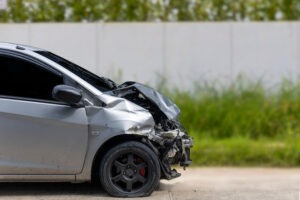
If you’ve been in a car accident, the first thing you should do is remain calm and assess any injuries you or another party suffered. Call emergency medical services if necessary. Seek medical attention, even if you think your injuries aren’t serious.
From there, you should call the police, even if you believe the property damage is minor. Beyond seeking medical attention and alerting the local police, you can take other steps to protect your right to seek compensation.
Protecting Your Health and Rights After a Maryland Car Accident
The aftermath of a sudden car accident can be confusing, and if severe, there may be injuries and property damage involved. If you are well enough after the collision to take action, there are several steps you should take to help you or your lawyer later when seeking a claim. It may be initially unclear who caused the accident, so it is essential to preserve evidence, especially if it supports your claim that you were a victim.
Assess and Confirm or Note Any Injuries
The most important thing you need to do is determine if you, your passengers, or the occupants of other vehicles have suffered significant injuries. If so, call 911. Report all of your injuries, pain, and symptoms, no matter how mild, to emergency responders and hospital personnel, including:
- Headaches
- Dizziness
- Lightheadedness
- Ringing in the ears (tinnitus)
- Blurry vision
- Loss of consciousness
- Short-term memory or concentration issues
It’s not uncommon for very serious injuries to not become apparent until much later after the accident. Make a detailed list of all injuries, pain, and other symptoms you’re experiencing, even if a symptom seems relatively minor at the time.
Call The Police and Follow Their Instructions
Always call the police to the accident scene, even if your injuries and property damage seem minor. Once law enforcement arrives, ask if the accident report will include each person’s insurance information.
The police should tell you that either the information will be on the report or they will suggest each person supply the information to the other. At this time, the most important thing to do is to comply with the instructions given to you by the responding officers.
Take Photos of the Accident Scene and Vehicles
Understandably, one of the key things many people neglect to do after a car accident is take photos or videos. If you don’t have a smartphone or the ability to do this, ask someone else at the scene.
Be sure to get as many images as you can of the individuals involved in the accident, witnesses, accident scenes, and vehicles. Any of these may be used as evidence later to prove who caused the accident and the extent and severity of any injuries and damage.
Notify Your Insurance Company
You must notify your insurance company of an accident. When you speak to them, do not give them any details beyond the basic facts, such as where and when the accident happened. Never speculate about who bears fault for the accident, either. A lawyer can handle any further communications with insurers.
Consider Contacting a Car Accident Attorney
Personal injury attorneys know how to negotiate with liable parties, prove accident claims, and help you navigate the legal process. They can review your case, answer your questions in person, and address any specific legal issues that may be important to your claim.
For a free legal consultation, call,
(888) 585-2188
Get Medical Treatment and Preserve Evidence Related to Your Injuries
If you have severe injuries, you may need some recovery time. If you require continuing care, it is imperative that you attend all medical appointments or have them rescheduled if necessary—these can include visits to physical therapists, specialists, and even routine follow-ups with your health provider.
This is important not only for your recovery but also for any claim you pursue. Insurance adjusters can argue that because you failed to attend your doctor’s appointments, you must not be experiencing significant pain or health issues and, therefore, are not entitled to certain forms of compensation. Also, document or obtain the following:
- All needed doctor’s visits, prescriptions, lab testing, physical therapy, hospital visits, treatments, and x-rays, and note the date each service was provided and the amount you were charged.
- How your injuries, pain, or impairments have adversely affected your daily life and relationships.
- Copies of all medical bills, health records, and any related documents you are provided with.
- Intangible losses you’ve experienced, such as daily pain, discomfort, emotional anguish, fatigue, tenderness, inconvenience, etc.
This documentation can serve as evidence of losses that can be sought as damages in a personal injury claim. For example, you can pursue reimbursement for medical bills, loss of income, pain and suffering, reduced quality of life, and more.
Contact Jenner Law Firm Today for Help With a Car Accident
If you’ve been injured in a car accident, you should consult with an attorney and have them review the fine print in your insurance policy to ensure that you are doing everything you need to do to protect your legal rights.
They can also provide guidance on your various options for compensation. If you have more questions about what to do after a car accident in Maryland, contact the Jenner Law Firm for a free case review.
